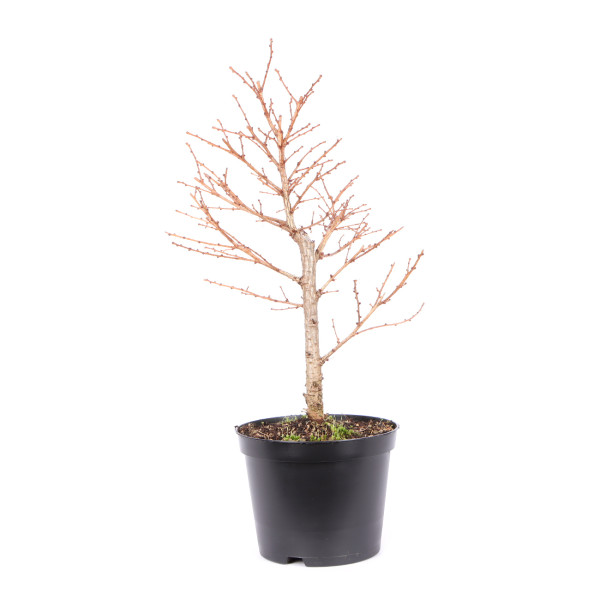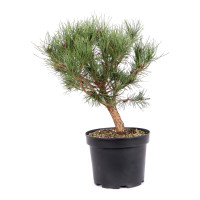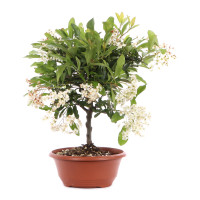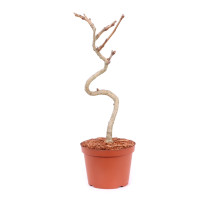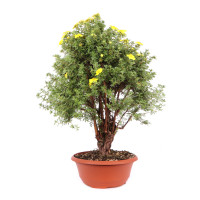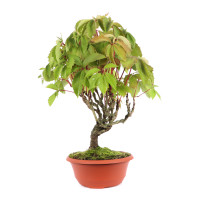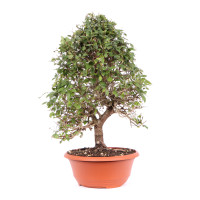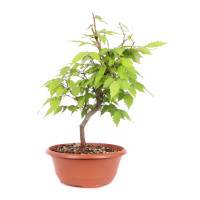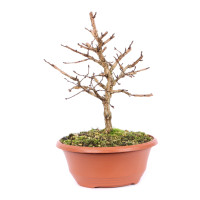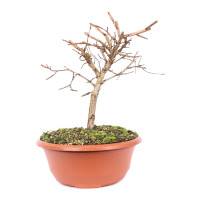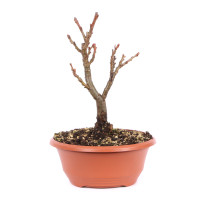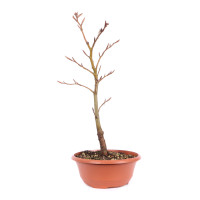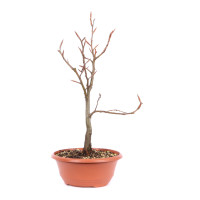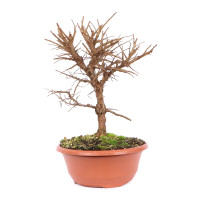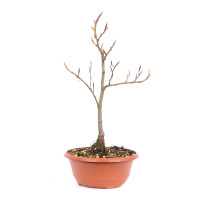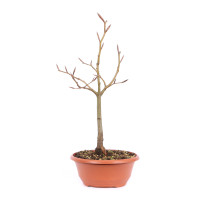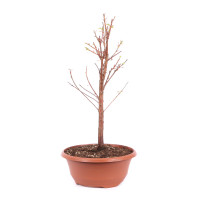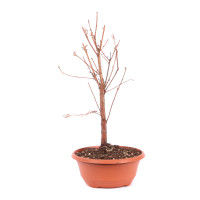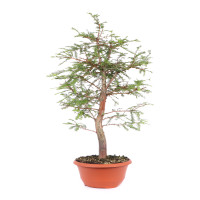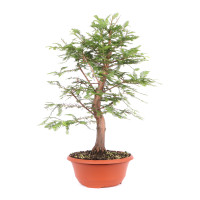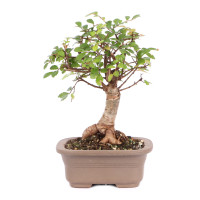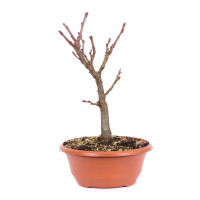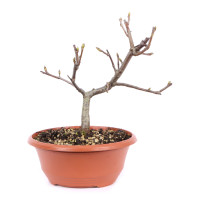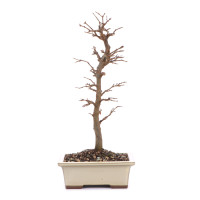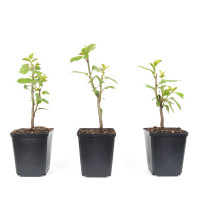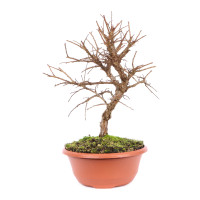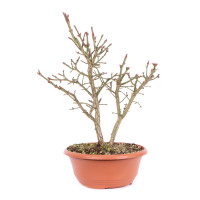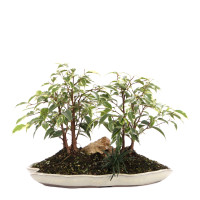- Order number: 1015-J-25-0134
- Height: 35 cm (no pot)
- Foliage: deciduous
- Bonsai Pot: plastic pot
- Year: 2022
- Origin: Germany
Larix kaempferi - Japanese Larch
General:
The Japanese larch grows naturally in the mountainous regions of Japan at an altitude between 1200 and 2000 meters above sea level. It prefers fresh to moist, deep and nutrient-rich soils. However, it does not tolerate waterlogging and drought. If there is enough moisture, it is superior to the European larch in terms of growth potential and is therefore often found in our forestry forests. The species differ significantly in their habitus, shoots and needles. A European larch grows with a narrow crown, rising branches and the yellowish shoots are covered with long tufts of needles. The Japanese larch, on the other hand, grows with a broad crown and noticeably horizontally protruding branches. The young shoots are also reddish, the tufts of needles denser and the needles themselves shorter. Larch trees grow up to 45 meters high and, interestingly, have deciduous foliage. In autumn, the needles turn bright yellow and are thrown off.
Care as a bonsai:
Larch trees are very popular with us as bonsai. They are very robust and easy to cut. They also sprout from the old wood and wiring is no problem thanks to the flexibility of the branches. Wiring is also made easier by dropping the needles in autumn. The wood is also very durable and can be used as a corresponding dead wood in the design. The Japanese larch has denser and shorter needles than the European larch and is also a little easier to care for than the native species. However, it also loves a sunny location and no waterlogging. Repotting is best done in spring shortly before the first needles appear. After that, the larch is very sensitive and can even die. In late frosts, the tree should be protected accordingly. Apart from that, the larch is very hardy.

